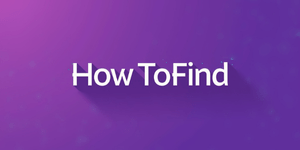
How to Find the Answer to Anything: Your Ultimate Guide
In our fast-paced information age, the ability to find the answer to anything is crucial. Whether you’re a student, a professional, or just a curious individual, knowing how to efficiently seek answers can greatly enhance your knowledge and decision-making skills. This guide will delve into practical methods on how to find answers to your questions, whether they’re simple queries or complex problems.
1. Understand the Nature of Your Query
Before diving into research, it’s essential to clearly define what you are asking. Questions can range from broad inquiries like “how to become a better leader” to specific technical issues such as “how to resolve a software bug.” Understanding your query helps to narrow down your search, making it easier to locate the information you need.
Tips:
– Rephrase your question, if necessary, to ensure clarity.
– Break down complex questions into smaller parts for better understanding.
2. Utilize Online Search Engines
When most people think about how to find the answer to anything, they often start with a search engine. Websites like Google or Bing are great resources. To optimize your search:
Keywords:
– Enter specific keywords related to your inquiry.
– Use quotation marks for exact phrases (e.g., “how to find the answer to anything”).
– Include question words like “how,” “what,” and “why” to specify your search.
Example:
– If you’re looking for tips on improving productivity, search for “how to improve productivity at work.”
3. Engage with Online Communities
Online forums such as Reddit, Quora, or specialized community websites are excellent resources when it comes to finding answers. These platforms allow users to pose questions and receive answers from individuals with various experiences.
How to Engage:
– Post your question in relevant subreddits or forums.
– Ensure that your question follows community guidelines.
– When you receive responses, evaluate the credibility of your sources.
4. Leverage Social Media
Social media channels can also provide quick and insightful answers to your questions. By using platforms like Twitter, LinkedIn, or Facebook, you can connect with industry experts or even ask your network directly.
Strategies:
– Use hashtags relevant to your question (e.g., #Advice, #Help).
– Tag experts or individuals who might provide useful information.
– Be clear and concise in your posts to foster engagement.
5. Explore Educational Resources
Never underestimate the value of educational resources. Websites, courses, and eBooks can provide in-depth information. Here’s a breakdown of various types of educational resources:
Recommendations:
1. Online Courses: Platforms like Coursera or Udemy offer courses on a vast array of topics. Look for courses relevant to your question that provide not just answers, but a deeper understanding.
2. eBooks: Kindle and other eBook platforms provide access to a plethora of books. Search for titles that align with your inquiry.
3. Webinars and Podcasts: Engage in live or recorded sessions that cover topics of interest, offering real-world insights and expert opinions.
4. YouTube: This platform hosts a variety of informative videos, tutorials, and lectures, helpful for visual learners.
5. Academic Journals: If your questions are research-related, accessing academic journals via online libraries can provide peer-reviewed answers and data.
6. Trustworthy Websites and Databases
Identifying reliable sources of information is key to finding accurate answers. Not all websites are equal in terms of credibility. Here’s how to distinguish trustworthy sources:
Evaluation Tips:
– Check the author’s qualifications and expertise.
– Look for references and citations that substantiate the information presented.
– Be wary of overly biased or opinionated content.
7. Foster a Critical Mindset
When searching for answers, critical thinking is essential. Evaluate the information you come across and consider the implications or context in which it applies.
Questions to Ask:
– Is the information up to date?
– Does it align with other reliable sources?
– What are the potential biases in the information?
Conclusion: The Journey of Discovery
Finding the answer to anything is not always a straightforward task. However, by utilizing the right platforms and employing critical thinking, you can efficiently tackle any inquiry. Remember, the quest for knowledge is as important as the answers you find. Giftys.shop offers a wide range of products that can further aid your journey of learning and discovery, ensuring you have the right tools at your disposal.
By applying these strategies, you will not only be adept at finding answers but also become a more informed and knowledgeable individual.
You might also enjoy reading AI-powered gift ideas for more insights on this topic.
For more articles, you can visit the Giftys.Shop Blog.




